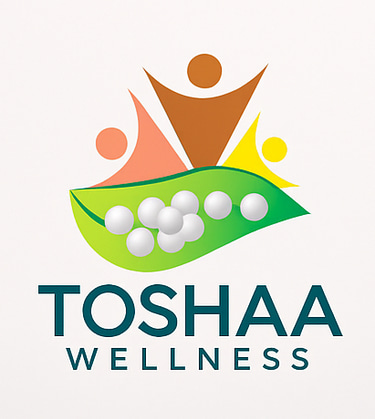Exploring Homeopathy Around the World: Cultural Variations in Remedies


As a practicing homeopath for over two decades, I have had the privilege of connecting with patients and fellow practitioners from different corners of the world. While the foundational philosophy of homeopathy remains the same — "like cures like" — the way remedies are chosen, perceived, and applied can vary significantly across cultures. This diversity not only highlights the adaptability of homeopathy but also enriches its global tapestry.
In this blog, I invite you to explore the fascinating cultural nuances of homeopathic practice across different regions and how remedies often reflect the emotional, environmental, and societal contexts of their people.
🌍 1. The Universal Core of Homeopathy
Before we journey through different countries, it’s essential to understand the universality of homeopathy. At its core, homeopathy is a holistic system that considers the mind-body connection, individual constitution, and symptom totality. Remedies are selected not just based on physical ailments but on emotional and mental states as well.
Whether in India, Germany, Brazil, or the United States, the Materia Medica and repertories guide us through the same vast library of remedies. However, how we interpret and prioritize symptoms can be influenced by cultural norms, climate, diet, and even traditional beliefs.
🇮🇳 India: The Land of Integration and Spiritual Remedies
India is often considered the heartland of modern homeopathy. Introduced in the early 19th century, homeopathy quickly integrated into the mainstream due to its alignment with Ayurveda’s holistic approach.
Here, patients often present with complex chronic conditions like diabetes, skin ailments, and respiratory diseases — a reflection of the urban stress, dietary habits, and climate. Remedies like Sulphur, Nux Vomica, and Lycopodium are frequently prescribed. Interestingly, meditative and spiritual aspects are deeply respected, and emotional symptoms often include themes of family duty, societal pressure, and spiritual conflict.
🇩🇪 Germany: Precision and Scientific Homeopathy
Germany is the birthplace of homeopathy, thanks to Dr. Samuel Hahnemann. Modern German homeopathy is known for its precision, strict adherence to classical principles, and extensive use of single remedies.
Patients in Germany often value data and research, and homeopathy is practiced in tandem with conventional medicine. Remedies here are often used for detoxification and addressing environmental sensitivities — for example, Arsenicum Album for chemical exposure or Carcinosin for stress related to perfectionism and rigid societal expectations.
🇧🇷 Brazil: Emotional Healing and Plant-Based Remedies
In Brazil, homeopathy is deeply emotional and expressive — much like the vibrant culture itself. People openly share feelings, which allows homeopaths to grasp the mental-emotional picture with more clarity.
There’s a strong affinity for plant-based remedies and nosodes. Remedies like Ignatia, Pulsatilla, and Staphysagria are often indicated for grief, abandonment, and emotional upheaval. The cultural openness to alternative medicine also means homeopathy is widely accepted across age groups, often used preventively.
🇫🇷 France: Homeopathy for Everyday Health
In France, homeopathy is almost part of daily life. It's common to see people using Arnica for bruises, Oscillococcinum for flu, or Chamomilla for teething in infants — often without consulting a practitioner.
The French homeopathic system is highly organized, with remedies available over-the-counter and often reimbursed by health insurance. While classical homeopathy is respected, polypharmacy (use of multiple remedies) is also common. The cultural focus is often on efficiency and accessibility, and remedies are chosen for quick symptomatic relief.
🇿🇦 South Africa: A Blend of Tradition and Modernity
In South Africa, homeopathy exists alongside traditional Zulu and Xhosa medicine. Practitioners often work in multicultural settings, which require sensitivity to tribal beliefs, ancestral trauma, and community health issues.
Remedies frequently address issues like HIV/AIDS support, trauma from societal violence, and generational grief. Natrum Muriaticum, Aconite, and Thuja are frequently used, not just for their physical indications but for their resonance with emotional suppression and fear.
🇺🇸 United States: The Rise of Integrative and Constitutional Homeopathy
In the U.S., homeopathy has had a rollercoaster journey — from popularity in the 19th century to marginalization, and now a steady comeback as part of integrative and functional medicine.
American patients often seek homeopathy for chronic illnesses like autoimmune disorders, Lyme disease, anxiety, and autism spectrum disorders. Practitioners lean heavily on constitutional prescribing, and emotional language is key — issues like identity, purpose, and trauma are central themes.
Remedies like Sepia, Carcinosin, Tuberculinum, and Medorrhinum are frequently seen in deep constitutional cases, where the cultural backdrop includes high stress, individualism, and fast-paced lifestyles.
🧭 What We Learn from This Global Lens
Studying homeopathy through the lens of culture reminds us that while the remedies may remain the same, the people we treat are vastly different — shaped by heritage, history, and habitat. A child in Tokyo and a farmer in Kenya may both benefit from Belladonna, but the underlying story of their illness will differ deeply.
As a homeopath, cultural competence is not just a bonus — it’s essential. It allows us to be better listeners, more empathetic healers, and more accurate prescribers.
🕊️ Closing Thoughts: Embracing the Diversity of Healing
Homeopathy, at its heart, celebrates the uniqueness of the individual. When we embrace cultural diversity in our practice, we not only enrich our understanding of the human experience but also deepen the healing process.
Whether you’re a practitioner or a patient, I encourage you to explore homeopathy’s global heritage. It is a gentle reminder that while we may come from different lands, our inner worlds are more connected than we think.
In health and healing,
Dr. Sushma Dandade
Classical Homeopath
www.toshaawellness.com
